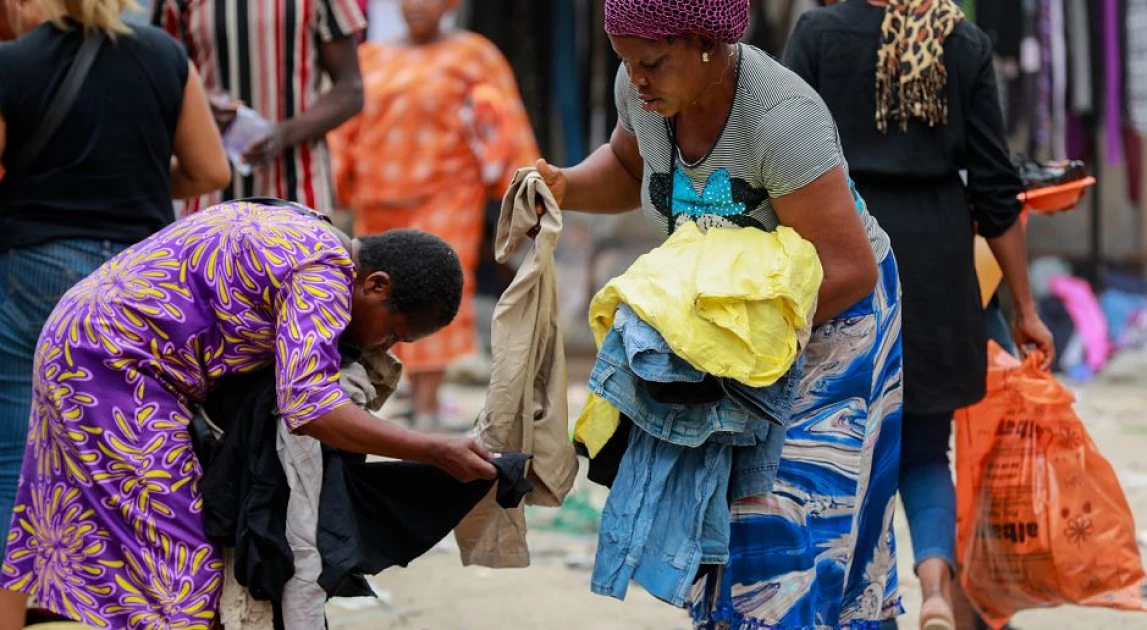Kenya cannot ban Mitumba without upsetting the US, just ask Rwanda

Photo by Reuters
In 2016, five East African countries; Kenya, Uganda, Tanzania, Burundi and Rwanda, had announced a joint plan
of banning the importation of second-hand clothing popularly known as Mitumba.
This, the EAC Council of
Ministers who proposed the ban, said was to help spur local manufacturing
through the adoption of the Industrialisation Policy.
The EAC directed member states
to source their textiles and shoes from within the region with a plan of
phasing out imports by 2019.
The EAC also went further and
proposed a reduction in imports of used cars.
The region was seeking to push
for the promotion of motor vehicle assemblies together with textile and leather
industries in the region.
Everything was on track until
the United States, through then President Donald Trump got itself involved and
scattered the plans to the four corners of the earth.
Washington insiders were
rattled by this move and quickly moved to put out this fire before it got
hotter.
The US government initiated
“an out-of-cycle review of Rwanda, Tanzania, and Uganda’s AGOA eligibility
regarding their decisions to phase in a ban on imports of used clothing and
footwear.”
The African Growth and
Opportunity Act (AGOA) provides duty-free treatment to goods of designated
sub-Saharan African countries (SSAs).
The program dates from 2000
and has the goal of promoting economic growth through good governance and free
markets.
It covers non-textile as well
as textile goods and was most recently re-authorised through September 30,
2025.
The Secondary Materials and
Recycled Textiles Association (SMART), asserted that the East African Community
(EAC)’s 2016 decision to phase in a ban on imports of used clothing and
footwear would impose significant economic hardship on the U.S. used clothing
industry, and is inconsistent with AGOA beneficiary criteria for countries to
establish a market-based economy and eliminate barriers to U.S. trade and
investment.
SMART’s petition requested an
out-of-cycle review to determine whether Kenya, Rwanda, Tanzania, and Uganda,
members of the EAC, are meeting AGOA eligibility criteria.
In its petition, SMART
estimated that 40,000 U.S. jobs related to the collection, processing, and
distribution of used clothing and footwear would be negatively affected once
the ban is implemented.
With this opposition, Kenya,
Uganda and Tanzania backed away from their plans but Rwanda held firm.
Kenya’s then Industrialisation
Cabinet Secretary Adan Mohamed said that retaining the flow of these clothes
into the country will allow both importers and local producers to remain in
business.
The BBC said Kenya's benefits
from Agoa are considerably higher than Rwanda: exports to the US amounted to
nearly Ksh.70 billion ($600m) in 2017, compared to just Ksh.5 billion ($43m)
for Rwanda.
Rwanda’s ban on Mitumba was met
with a lot of heat and in March 2018, gave Rwanda 60 days' notice threatening
to suspend the country from selling clothes to America duty free.
President Trump determined
that Rwanda was not making “sufficient progress toward the elimination of
barriers to U.S. trade and investment, and therefore was out of compliance with
eligibility requirements of AGOA.”
Rwanda did not move and after
six months, was suspended from AGOA.
President Kagame was not moved
saying Rwanda will not bow to pressure by the US to reduce taxes and lift
the ban on used clothes.
“The decision we took as the
East African Community (EAC) still stands. We want to implement the rules of
origin, after finding out that items are made in China, used in the US and
dumped in East Africa,” said Olivier Nduhungirehe, the State Minister at
Rwanda’s Ministry of Foreign Affairs, Regional Co-operation and East African
Community.
According to the BBC, the
used-clothing market in Rwanda employs more than 22,000 people in 2016 and was
worth $17m (Ksh.2 billion). That ecosystem is struggling since President
Kagame's ban.
Want to send us a story? SMS to 25170 or WhatsApp 0743570000 or Submit on Citizen Digital or email wananchi@royalmedia.co.ke
Comments
No comments yet.


Leave a Comment